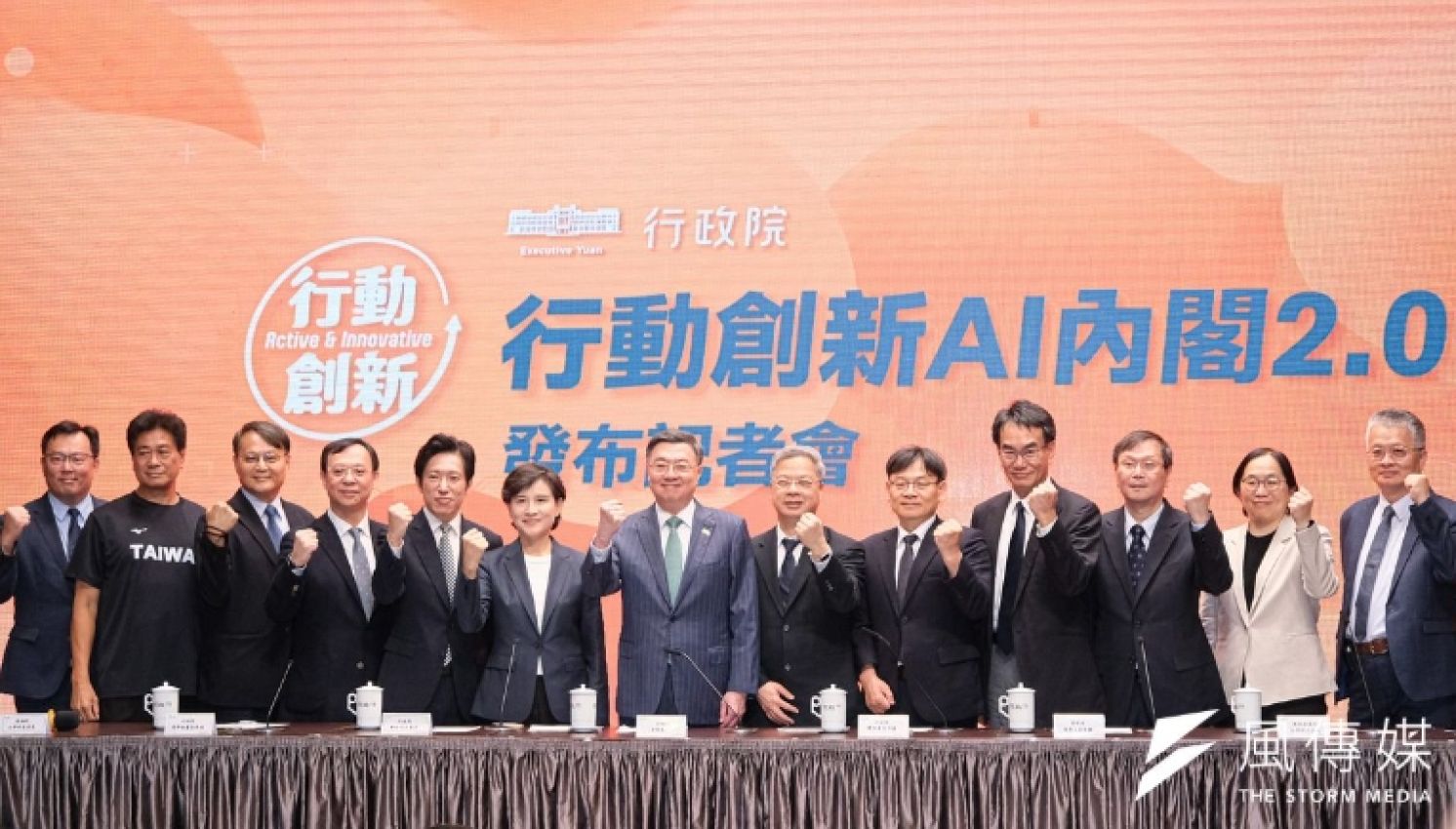
Cabinet Reshuffle Has Little Impact: Political Hardliners Retain Power
United Daily News Editorial, August 29, 2025
If there was anything remarkable about President Lai Ching-te’s administration last year, it was the inclusion of several of his academic and industry friends from his “book club,” showcasing his creativity in broadening perspectives and appointing talent. Fifteen months later, this “book club faction” of ministers has collapsed, showing that his experiment has failed—or perhaps that he simply misjudged people. Observing the new list of 16 cabinet reshuffles announced yesterday by Premier Cho Jung-tai, strictly speaking, it is devoid of new ideas. Although the inclusion of one or two fresh-faced former athletes adds some freshness, it cannot conceal the suffocating atmosphere of an unchanged cabinet still dominated by political hardliners.
Looking at the reshuffle list, the so-called 16 names are actually an inflated number; in truth, only four ministerial positions drew attention: the heads of the Ministry of Economic Affairs (MOEA), the National Development Council (NDC), the Ministry of Health and Welfare (MOHW), and the Ministry of Digital Affairs (MODA). Among them, Minister of Economic Affairs Kuo Jyh-huei, Minister Liu Ching-ching of the NDC, and Minister of Digital Affairs Huang Yen-nan were all members of President Lai’s “book club.” This time, they were all “asked to resign,” citing reasons such as personal issues, health concerns, and the expiration of secondment terms. If the entry of industry figures into the cabinet once symbolized President Lai’s “creativity,” then the departure of Minister Kuo and Minister Liu, who left disheartened after failing to adapt, signals that President Lai’s creativity has been exhausted.
In stark contrast to the mass retreat of the “book club faction,” the political hardliners and militant ministers all retained their posts. This is the truly disappointing part of the reshuffle, a complete pretense. The continued decline of the Lai administration’s approval rating stems mainly from President Lai’s obstinacy and the Cho cabinet’s incompetence, compounded by the way ministries such as justice, interior, and education continue to stir up internal divisions, leaving society anxious and unsettled. After the failed recall movement, those who should bear the primary responsibility are President Lai, Premier Cho, and Democratic Progressive Party (DPP) whip Legislator Ker Chien-ming—the “ringleaders”—yet they show no remorse. In the end, they sacrificed the “book club faction” members like Minister Kuo, while leaving the belligerent and obstinate ministers securely in place. How can such a “fake reshuffle” resonate with the public?
This hollow reshuffle can be analyzed from three aspects. First, it lacks goals. The purpose of a reshuffle should be to enhance governance efficiency, but looking at Premier Cho’s announced list, it is merely a matter of dismissing a few ministers and filling the positions, with no sign of determination to improve performance.
Second, it continues favoritism. When the Lai administration wanted to highlight its boldness in appointments, it treated industry figures as honored guests; but when it needed scapegoats, it discarded them as sacrificial victims, taking the blame on behalf of fellow DPP comrades.
Third, it has become even more insular. Aside from Shih Chung-liang’s promotion to Minister of Health and Welfare, which received praise, the other shifts—such as those of secretary-general designate of the Executive Yuan Chang Tun-han and Minister of Economic Affairs designate Kung Ming-hsin—only highlight how the Lai administration’s talent pool is nearly exhausted. Reliance on a small inner circle will do nothing to enhance collective brainstorming.
Ironically, if certain state-affiliated media had not mentioned it again, people would have almost forgotten that the Cho cabinet once branded itself as the “AI Action Cabinet.” Now, this reshuffle is even dressed up as the “AI Action Cabinet 2.0.” In fact, during his 15 month-tenure, Premier Cho has shown no connection whatsoever to “AI,” nor any visible sign of “action.” What people have seen is his use of “reconsideration” and “constitutional interpretation” as stalling tactics for all legislation, as well as his closed-off stance in U.S.-Taiwan tariff negotiations—“no communication, no consultation, no disclosure.” In a recent interpellation, when asked about fraud in mobile payments, Premier Cho’s response was: “I always use cash on delivery.” Can a premier still living in the “cash era” truly understand the importance of online transactions in the digital age? Does he realize how absurd it is for the title “AI Action Cabinet” to be placed upon him?
The Lai administration’s approval rating has plummeted below 30 percent. Frankly speaking, it is not the fault of the few departing ministers, but rather the narrowness and shortsightedness of the Lai-Cho system. Under President Lai’s highly politicized model of governance, where the president and the premier interfere in and dictate every decision, even the most capable ministers cannot achieve results. Thus, while Li Yang’s appointment as Minister of Sports has drawn attention, questions remain as to how long a thirty-year-old can maintain his pure ideals in the predatory political environment of the ruling party. Just like Minister Kuo and Minister Liu, who lasted barely over a year, when it came to crucial decisions, the top boss ultimately chose to protect his old comrades within the party first.
Sorry—regarding this new cabinet lineup, we cannot offer any words of praise or expectation.
From: https://udn.com/news/story/7338/8970007?from=udn_ch2cate6643sub7338_pulldownmenu_v2